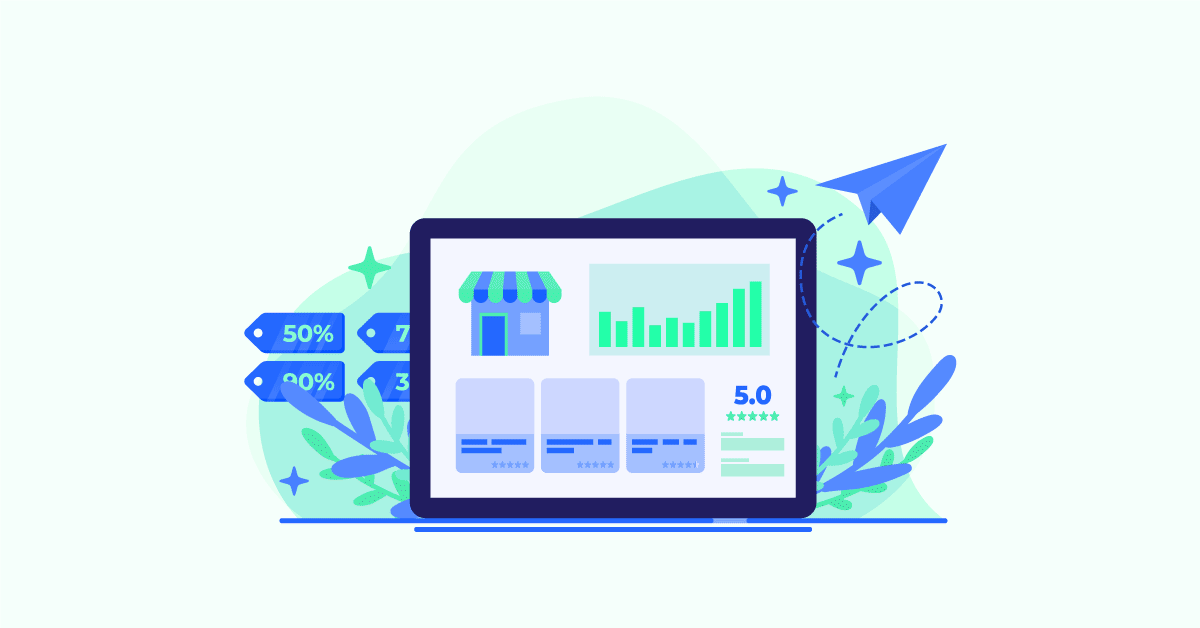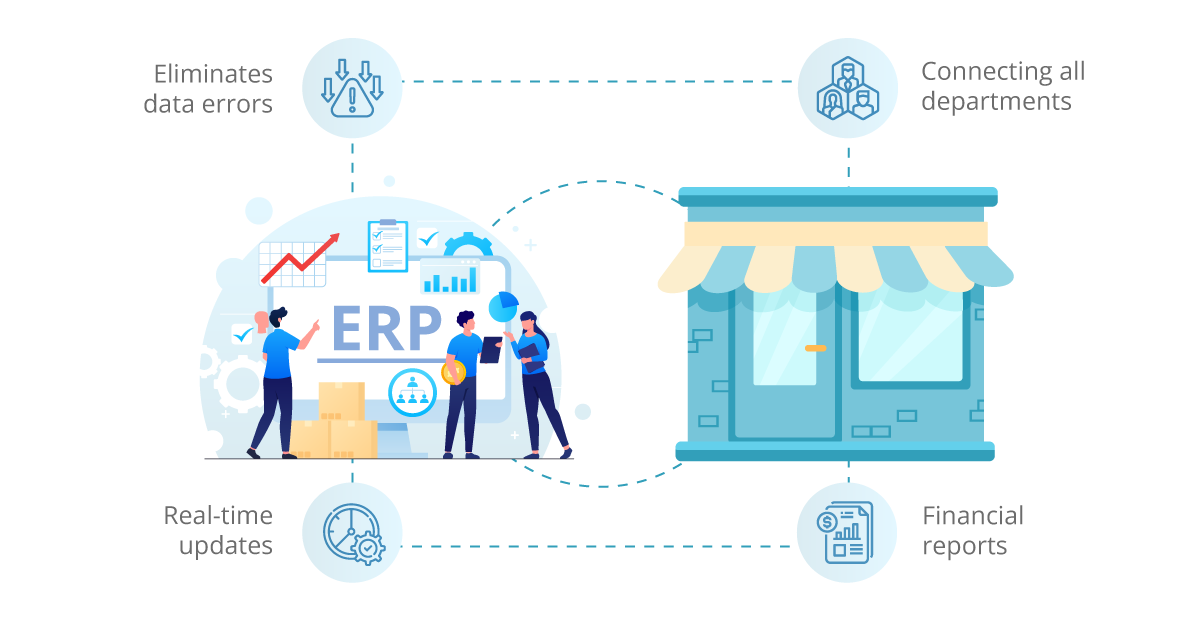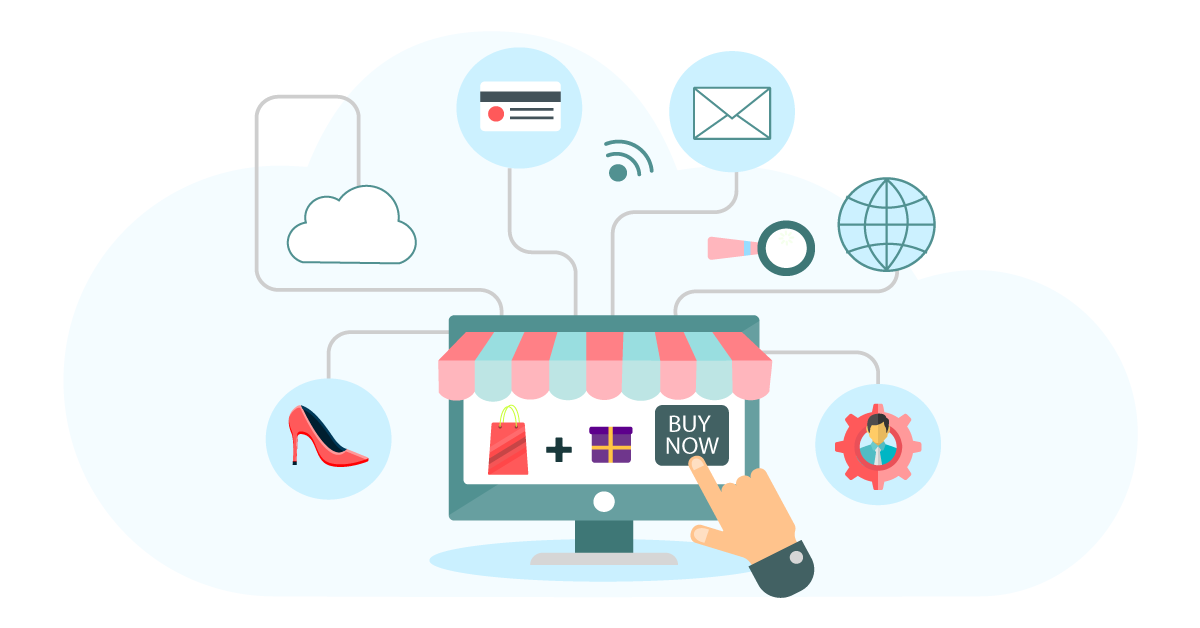Enterprises have become heavily dependent on cloud technology and are seeking ways to make the cloud experience smoother for their business users. Achieving this goal necessitates the thorough integration of cloud tools and data. To this end, the integration platform as a service (iPaaS) has come to the forefront as a potential solution for enterprise-level integration.
In this article, we’ll examine the workings of iPaaS and how it could benefit e-commerce enterprises by streamlining the management of their cloud-based applications and data systems.
Dissecting the iPaaS methodology
A variety of technology companies, including the primary cloud service providers (CSPs), have incorporated iPaaS into their product offerings.
Enterprise clients who opt for an iPaaS solution first select the tools and services within the platform that fit their integration requirements. The most common uses of iPaaS are API management and direct app integration, but it can also aid in integrating data, IoT devices, clouds, DevOps platforms, microservices, and other elements.
Aonflow iPaaS – Free for First 3 Months!
Build and run up to 1,500 transactions monthly with no cost. No payment info needed!
The customer is responsible for managing direct tasks through the iPaaS platform. However, the CSP or iPaaS vendor takes care of most other aspects such as daily management, upgrades, data governance, security patches, and adjusting resources as needed. This balance of giving the customer the ability to concentrate on core business functions and the flexibility to integrate various resources makes iPaaS an ideal solution for enterprises requiring a tailored integration to fit their organizational requirements.
Consumers today prefer to use digital channels for making purchases. E-commerce has become a critical channel for retailers and can no longer be overlooked as an auxiliary service.
E-commerce sales in the United States are projected to surpass $740 billion in 2023. As these numbers continue to rise, retailers are introduced to various applications aimed at boosting their e-commerce efforts. Although these applications support growth and help retailers reach their goals, they often result in data being segregated across separate systems, hindering the retailer’s ability to track all data in real-time and make informed decisions that can impact revenue. In this scenario, choosing an integration solution may be the best option for retailers.
Application integration allows for the seamless flow of data between applications by providing various interfaces for managing different data flows, optimizing business processes, and streamlining operations to provide exceptional customer experience. Utilizing a cloud-based integration solution is seen as a crucial tool for taking advantage of significant digital expansion.
As iPaaS is still a relatively new concept, the best way to comprehend its practical functioning is by examining successful implementation in various industries.
Integrating enterprise resource planning (ERP) and e-commerce is critical for success in online retail as sellers must ensure a smooth flow of backend information to meet customer demands efficiently and effectively. This involves transferring distribution and inventory data from ERP software to online sales channels and vice versa. However, achieving this kind of interplatform connectivity can be challenging.
Many e-commerce companies face issues with ERP and sales channel integration due to ineffective or complicated middleware. Fortunately, there is an alternative solution: integration-Platform-as-a-Service technology.
The integration platform as a service (iPaaS) offers a solution for online retailers to connect their ERP systems to their mobile and web sales channels without encountering difficulties posed by outdated integration tools. iPaaS technology is a valuable resource for e-commerce businesses seeking to improve their internal data connections or establish them for the first time.
Legacy integration techniques have long been used by online retail organizations for frontend and backend integration, according to International Data Group. The Enterprise Service Bus (ESB) method allows for all data flows to be integrated into end-user-facing applications. Batch data integration is primarily used to transfer data to and from storage facilities, providing room for information organization and management.
XML integration has similar capabilities, but it’s meant for smaller data sets. Although these techniques used to be effective, they come with their own set of problems. ESB leads to complicated applications with different development, testing, and production environments, and is known for being rigid. On the other hand, batch and XML integration can’t accommodate the large amounts of information that e-commerce companies need to transfer, leading to backend problems and excessive expenses.
iPaaS technology offers a solution for retailers looking to integrate their ERP and e-commerce systems. It combines hardware, software, and services that enable retailers to develop, test, and deploy cloud-based applications with ease. With preconfigured API connectors and development roadmaps offered by most vendors, iPaaS provides a secure and flexible solution for both cloud-based and on-premises e-commerce companies. This technology is a more effective alternative to traditional integration methods, offering significant benefits to retailers looking to improve their backend processes.
Understanding the benefits of iPaaS for e-Commerce
One of the major advantages of using iPaaS technology is its versatility. Unlike traditional ESB, XML, and batch-based approaches, this innovative solution gives online retailers the ability to create and implement custom integration workflows that meet their specific needs. Additionally, iPaaS is highly scalable, with tools for automated provisioning, making it ideal for e-commerce companies seeking to meet their integration targets in real-time. The technology also streamlines backend system management, as it enables the creation of centralized retail applications that make it easier to manage e-commerce and ERP processes. Furthermore, iPaaS combines digital and physical tools and services, making it far more effective than its legacy counterparts.
Embracing the iPaaS technology
The implementation of iPaaS technology can be complex and challenging, especially for IT teams without e-commerce expertise. While vendors provide comprehensive product and service packages, these can be difficult to navigate. However, this shouldn’t discourage e-commerce companies from utilizing iPaaS as they can benefit from working with a reputable e-commerce development firm. Such companies can bring their expertise and best practices to successfully deploy integrated fulfillment and sales systems using iPaaS.
- Is your e-commerce store facing operational inefficiencies?
- Do you struggle with cross-departmental communication and data access?
- Are you losing customers due to poor customer experiences?
- Does accounting take up more time than it should?
- An ERP connection can help solve all of these problems.
What advantages can be gained by connecting ERP with the eCommerce storefront?
Integrating ERP with your eCommerce storefront offers numerous benefits.
Firstly, it streamlines your business operations by connecting all departments and ensuring unified data access.
Secondly, the automated nature of ERP eliminates data errors and reduces duplicates, leading to more accurate data for your eStore.
Thirdly, customers receive real-time updates on their purchases, improving their overall experience with your service.
Additionally, the integration of inventory and stock updates eliminates the frustration of “Out of Stock” items.
Furthermore, the ERP system generates financial reports on website sales, enhancing financial transparency across the enterprise.
Integrating ERP with your eCommerce storefront results in cost savings and improved efficiency.
The ERP system integrates your eCommerce platform with your backend operations, automating business processes for optimized performance. With this integration, you will have more control over your online store and an efficient solution for managing heavy volume business by implementing a Connector.
Why is iPaaS important for e-Commerce?
The integration platform as a service (iPaaS) is a solution that helps businesses achieve digital transformation, regardless of their industry.
- It makes the connections between various on-premise and cloud applications used by an organization less reliant on the IT team.
- iPaaS allows for the synchronization of data across different applications and systems through various protocols like HTTP, XML, REST API, JSON API, EDI SQL, and FTP, among others.
- The platform can also automate processes by adding rules to trigger specific actions based on data from other applications.
- The data integration is reliable even if the internet connection or an application goes down, as the data is automatically sent as soon as the connection is restored.
- iPaaS reduces costs, improves speed, and increases efficiency. It is a versatile integration platform that supports multiple integration formats, including HTTP, XML, SQL, APIs, FTP files, EDI, and more.
- The platform is cloud-based, allowing for access from anywhere with an internet connection.
- Additionally, it has a multi-tenant architecture that can handle high-volume data-integration demands as the business grows.
These are some of the key features and benefits of iPaaS that can help future-proof and transform a retail business.
Optimizing e-Commerce and sales
Having a well-functioning online store that operates as effortlessly as a physical retail store demands seamless connectivity between a variety of applications. iPaaS offers businesses the capability to achieve just that.
Think of an eCommerce website with a button that says “Buy with one click”. For that one-click transaction to be possible, there must be a smooth integration between the company’s customer database and its third-party payment processors. Additionally, an API must be in place to send address information to the logistics and order fulfillment section of the business, converting it into coordinates. All these tasks can be made possible with the help of iPaaS.
By integrating iPaaS with email validation and contact enrichment tools, the B2B sales process can be further optimized. This enables sales representatives to personalize messaging and send it to prospective leads at the appropriate time, making the sales process more efficient.
Aonflow is the leading integration platform.
You can kick-start by integrating your first-ever workflow in just a matter of minutes.
Reinvent the e-Commerce industry with iPaaS
Integrate data from various systems with ease
Retailers utilize various systems to handle their orders, track inventory, issue invoices, and manage the shipping process. When these systems are not properly integrated, it results in a significant amount of manual work even for the simplest of tasks. This manual process is time-consuming and labor-intensive. iPaaS can solve this issue. It offers a data, process, and application integration platform that easily connects e-commerce stores, marketplaces, CRM, ERP, and any other systems, and streamlines the sharing of data between these systems, ensuring accurate and timely information exchange.
Accelerate integration procedures
Integrating multiple systems through iPaaS is a quicker and more dependable solution than custom-made or point-to-point integrations. It can handle any type of data transfer, including API-driven, CSV files uploaded to EDI or FTP sites. iPaaS integration can be tailored to suit the specific requirements of your business.
Effortlessly keep track of integration problems
With iPaaS, it’s effortless to keep track of the integrations happening in your e-commerce business. The platform offers visibility into the integration process, which makes it easy for retailers to quickly detect and resolve any errors that may arise. The iPaaS integration provides clear information on its easy-to-read dashboard, allowing users to quickly determine if a particular error is business-critical and prioritize it for immediate resolution. This helps to ensure a seamless integration process.
Personalizing integrations to fit business requirements
The traditional approach to integration requires extensive custom coding to meet the specific needs of a company, which can become outdated and need to be redone as the business evolves. This is why Integration platform-as-a-service (iPaaS) is a better option, offering the ability to customize e-commerce integrations to meet evolving business needs. iPaaS has the advantage of not requiring significant upfront investment and offering the flexibility to adapt to changing requirements, making it a cost-effective solution for businesses.
Streamline your back-end management process
Having a seamless integration between Enterprise Resource Planning (ERP) and e-commerce is crucial for the success of retail businesses. iPaaS enables real-time integration, making it a faster option compared to traditional methods for effectively managing back-end information to meet customer needs. With iPaaS, back-end management becomes simpler as it facilitates the creation of centralized retail applications that make it easier to manage e-commerce and ERP.
Improved Customer Experience through Increased Visibility
Retailers can provide exceptional customer experience by ensuring smooth data sharing. Integrating e-commerce with web shops, logistics, warehouses, and payment systems helps streamline order processing and enables real-time shipment and delivery tracking. E-commerce integration offers a clearer view of retail processes, allowing retailers to consolidate all data in one place regardless of format. This leads to improved operational efficiency, top-notch service, and a better customer experience.
Now you understand the sources of the everyday difficulties faced by you and your customers in your eCommerce store. With the help of the software, you can easily manage your business as per your preference, as it also offers the possibility for customization.
Embracing iPaaS for E-commerce Integration – The Future Of Retail
In this blog, we have discussed why iPaaS may be the optimal e-commerce integration solution for retailers. Despite its many advantages over traditional integration methods, implementing iPaaS can be complex. However, there is a practical solution for embracing iPaaS for your e-commerce integration.
Aonflow can assist you in learning more about iPaaS solutions and customizing them to fit your business needs. If you’re interested in transforming your e-comm business with the benefits of a feature-rich cloud-based integration solution, please don’t hesitate to reach out to us.
Aonflow iPaaS – Free for First 3 Months!
Build and run up to 1,500 transactions monthly with no cost. No payment info needed!


